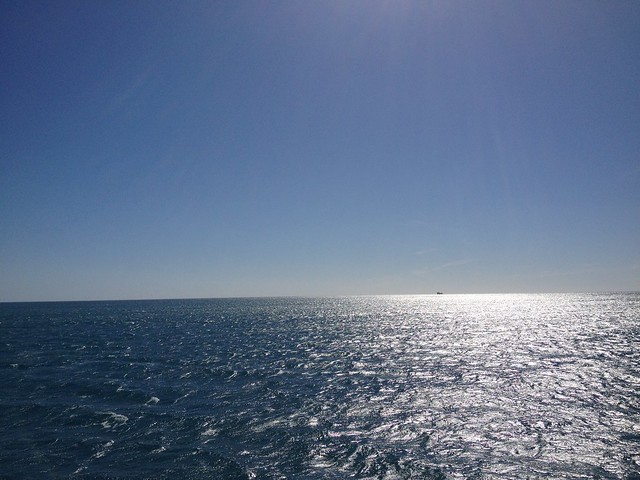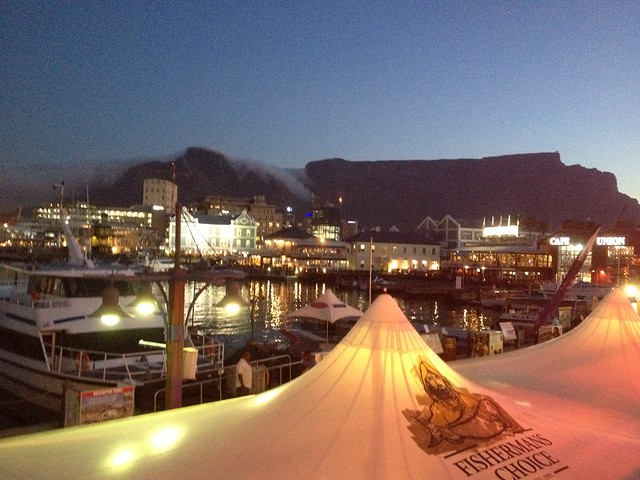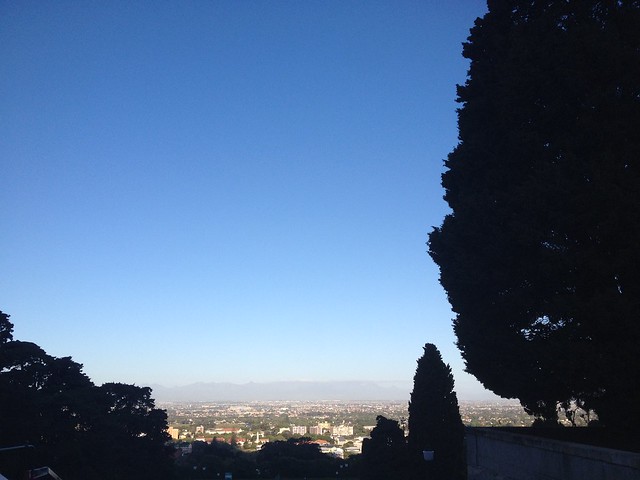 This is the second in a mini-series of posts about my attendance at the LIASA 2013 conference in Cape Town. Part 1 is here, with slides and audio from one of my presentations. I'll put more about the conference itself in Part 3 of this post, but it seems remiss to blog about giving a talk in South Africa without talking a little bit about what going to South Africa was like.
This is the second in a mini-series of posts about my attendance at the LIASA 2013 conference in Cape Town. Part 1 is here, with slides and audio from one of my presentations. I'll put more about the conference itself in Part 3 of this post, but it seems remiss to blog about giving a talk in South Africa without talking a little bit about what going to South Africa was like.
This conference happened in Week 2 of the academic year. As anyone who works in academic libraries knows, this is a BONKERS time, incredibly busy, possibly the busiest week out of the entire 52. So when I was first invited over I'd actually written the entire email saying that, although it killed me turn down such an amazing opportunity, I was going to have to say 'no'. But then three things happened - firstly I expressed my anguish out loud and my fabulous colleagues all said 'Go! Go! You have to go! We'll cover your teaching, anything, you can't not do this!', secondly I checked the dates and by a series of coincidences and happenstance, I actually didn't have any teaching in Week 2 (just hours of it in Weeks 1 and 3). The third thing that happened is I Google Image searched Cape Town. This was a mistake. It is SO beautiful - I love anything near Water anyway, but how many Cities have a mountain right in the middle? Not at the edge - in the actual middle! I also know several people who've been there who say it's incredible, and I have the painting of it done by my Great-Grandfather you can see in the presentation video in Part 1 so feel like I have a small connection with it.
In any case, I deleted the draft email, and sent another one saying, essentially, 'OMG yes'.
Ingrid Thompson, from HELIG, had invited me over. We follow each other on Twitter (hence my comment in the branding presentation that 'without Twitter I wouldn't be here' in South Africa) and, like everyone else at LIASA, she was incredibly helpful, generous, and welcoming. After a journey which was REALLY long (24hrs each way from door-to-door - I got about an hour's sleep in total, woo!) I was kindly picked up from the airport by Nikki Crowster who told me a bit about the City and the conference. They put me up in a much nicer hotel than the kind I'm used to staying in, and after a quick trip to the waterfront to explore a little, I had some food in the hotel and went to bed very early indeed.
My second day there was a Sunday, which I had to myself. I went to Robben Island and it was pretty moving - you're shown round by a former inmate. This was a fantastic initiative - the guy said it was like therapy for him, reclaiming a space which had previously only been associated with suffering. For us, it took a prison which had become iconic and part of a worldwide narrative regarding a cultural hero in Nelson Mandela, and took it out of that rarefied realm and into a much more immediate reality.
I explored the Waterfront, which is a hive of activity - on my last night I bagged an outdoor table in a steak restaurant and watched the sun go down behind Table Mountain, while the fishing boats came in from their day's work in a steady stream. It was pretty epic. I can't wait to go back with my wife.
As well as the Conference itself, I was also given a tour of the University of Cape Town by Ingrid (she works there); what a ridiculously beautiful campus that is. It reminds me of Verona - beautiful old stone buildings crawling with ivy. Here's the view from near the main Library:
On my final night there we went to the President's Dinner, at Gold Restaurant - watch this video for an idea of the experience. This was amazing too. You didn't choose from a menu, you were just brought food. Your wine glass was refilled with alarming frequency. There was singing, dancing, face-painting, drumming, scarily tall sort of dancing puppet-costume things, great conversations. I sat next to a lady who knew the language so she translated the songs for me as they were sung - it felt like a completely unique experience that I couldn't have had anywhere else. The whole thing was just heady, an assault on the senses. I don't know how authentic it truly was, but I completely loved it.
For all sorts of reasons I very nearly ended up not going to Cape Town, but I'm so glad I did. It was an incredible trip, and incredible conference, more on which in part 3.




